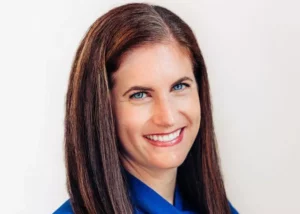“Coachability” is considered a good quality on sports teams, but you don’t hear it talked about as often in law firms.
That may be changing.
COVID is placing a premium on employees who are coachable – meaning they show up when needed, they stay calm in a crisis, they do what they’re trained to do, and they’re willing to learn new skills for the good of the team.
And it’s not just players who benefit from coachability.
The best leaders in a crisis are those who model “coachability” traits like listening attentively and being all-in for the team.
“Effective leaders are more like coaches than managers,” writes Stephanie Vozzo for FastCompany. “Coaches help their teams grow on a professional level, but being a coachable employee is a vital part of the equation…. ‘Coaching can be a mutual goal that benefits both the leader and the employee.’”
Learn other COVID coping skills at our upcoming FREE, one-hour CLE webinar “Zen and the Art of Practicing in a Pandemic” on December 15. JD and licensed therapist Michael Kahn will offer practical tips on ethics, mindfulness and work/life balance. Sign up here.
Below are three traits of “coachability,” courtesy of Vozzo and Fast Company. As you read through them, ask yourself how your firm stacks up.
Who on your team would say is coachable, and who is less so? How would you rate your own coachability? What steps can you take to improve coachability?
Coachability Trait #1: You’re Willing to Open Your Mind. “First, you must be agreeable to being coached,” says Vozzo. “A willingness to at least try is critical in order for the relationship to have a chance of success.”
Coachability Trait #2: You Have a Desire to Pursue a Goal. “Willingness and desire are a chicken-and-egg situation. You need willingness to try, but you must have a desire to sustain the relationship over time.”
Coachability Trait #3: You Have the Courage to be Vulnerable. “You may be willing to have a conversation and the desire to see it through, but when it comes down to reaping the benefits of being coached, you need courage,” according to the Fast Company piece. “Achieving goals takes courage, even if you are willing and have desire. To be coachable, you must dig deeper and uncover the root of your fears and the cause of what stops you.”
The bottom line: don’t let fear stop you from following through.
Source: FastCompany
If you practice in Wisconsin, Texas, Minnesota, Ohio, Illinois, Indiana or Michigan, you can stay on top of ethics and risk management news by being a member of Alta Pro Lawyers RPG. You’ll get access to free webinars, the Pro Practice Playbook, Reminger ProLink, Ask the Risk Pro and more. Here’s how to join.

















